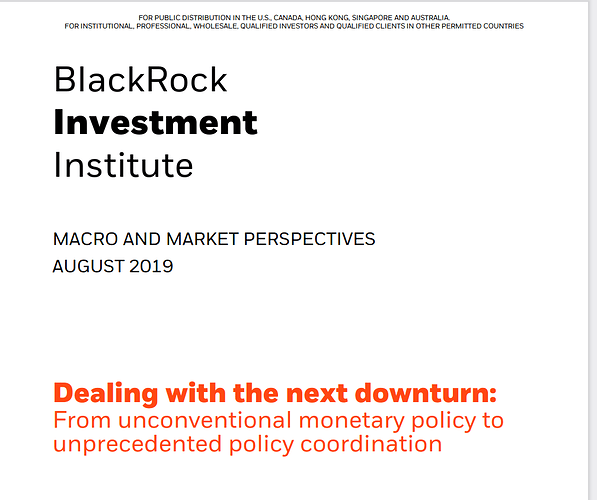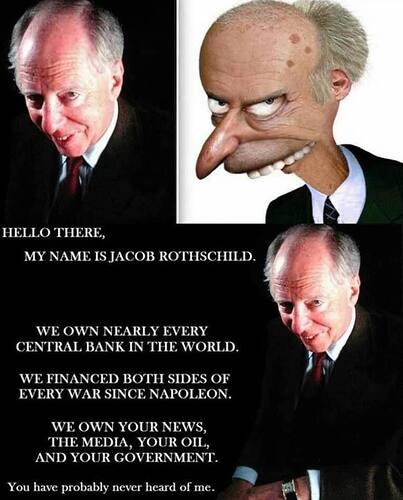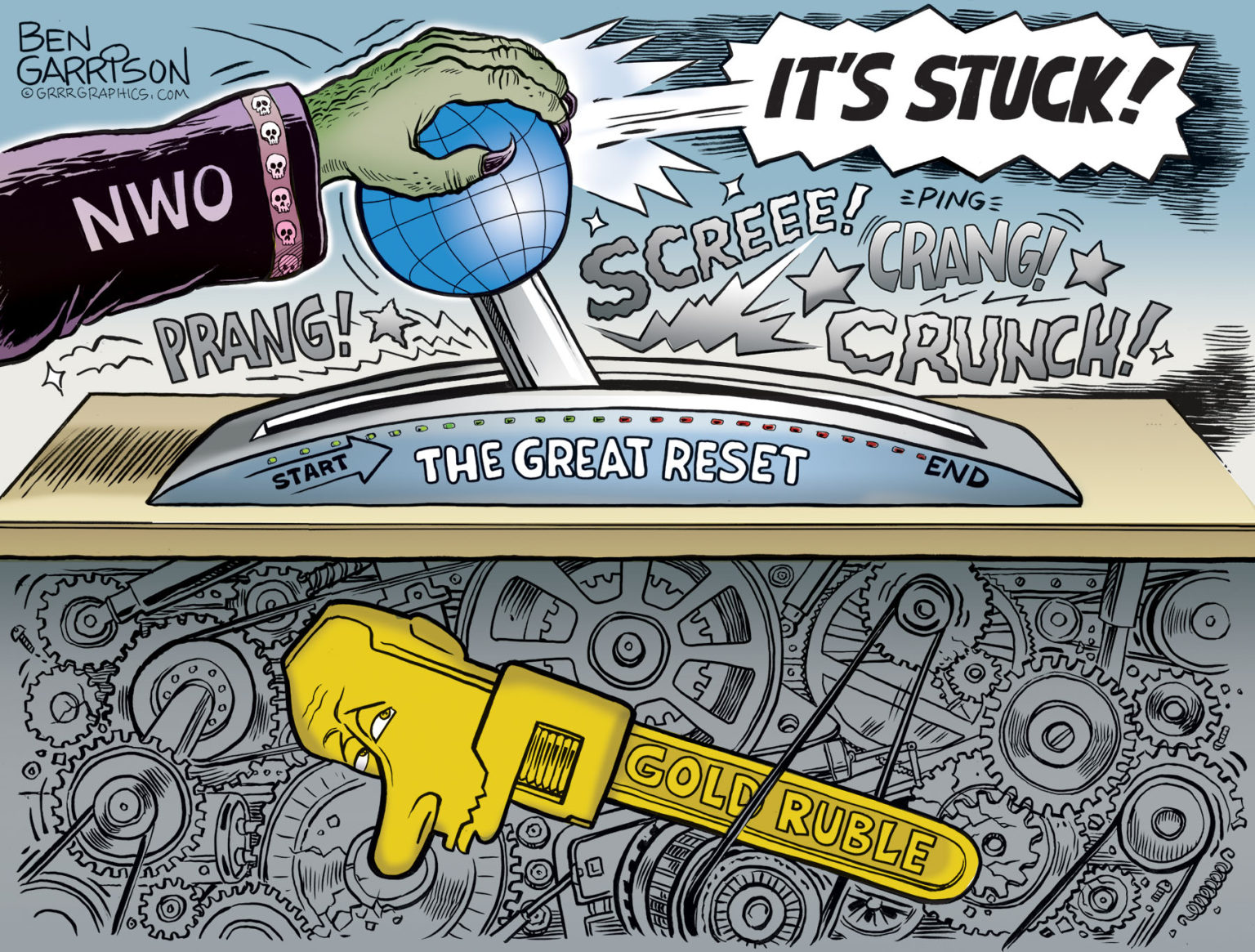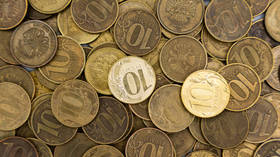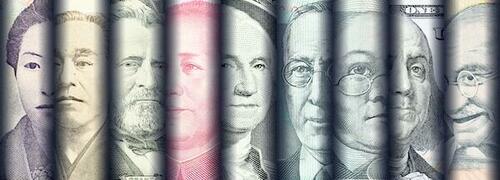Leading Russian economist Sergey Glazyev says a complete overhaul of the western-dominated global monetary and financial system is under works. And the world's rising powers are buying into it.
Sergey Glazyev is a man living right in the eye of our current geopolitical and geo-economic hurricane. One of the most influential economists in the world, a member of the Russian Academy of Sciences, and a former adviser to the Kremlin from 2012 to 2019, for the past three years he has helmed Moscow’s uber strategic portfolio as Minister in Charge of Integration and Macroeconomics of the Eurasia Economic Union (EAEU).
Glazyev’s recent intellectual production has been nothing short of transformative, epitomized by his essay Sanctions and Sovereignty and an extensive discussion of the new, emerging geo-economic paradigm in an interview to a Russian business magazine.
In another of his recent essays, Glazyev comments on how “I grew up in Zaporozhye, near which heavy fighting is now taking place in order to destroy the Ukrainian Nazis, who never existed in my small Motherland. I studied at a Ukrainian school and I know Ukrainian literature and language well, which from a scientific point of view is a dialect of Russian. I did not notice anything Russophobic in Ukrainian culture. In the 17 years of my life in Zaporozhye, I have never met a single Banderist.”
Glazyev was gracious to take some time from his packed schedule to provide detailed answers to a first series of questions in what we expect to become a running conversation, especially focused to the Global South. This is his first interview with a foreign publication since the start of Operation Z. Many thanks to Alexey Subottin for the Russian-English translation.
The Cradle: You are at the forefront of a game-changing geo-economic development: the design of a new monetary/financial system via an association between the EAEU and China, bypassing the US dollar, with a draft soon to be concluded. Could you possibly advance some of the features of this system – which is certainly not a Bretton Woods III – but seems to be a clear alternative to the Washington consensus and very close to the necessities of the Global South?
Glazyev: In a bout of Russophobic hysteria, the ruling elite of the United States played its last “trump ace” in the hybrid war against Russia. Having “frozen” Russian foreign exchange reserves in custody accounts of western central banks, financial regulators of the US, EU, and the UK undermined the status of the dollar, euro, and pound as global reserve currencies. This step sharply accelerated the ongoing dismantling of the dollar-based economic world order.
Over a decade ago, my colleagues at the Astana Economic Forum and I proposed to transition to a new global economic system based on a new synthetic trading currency based on an index of currencies of participating countries. Later, we proposed to expand the underlying currency basket by adding around twenty exchange-traded commodities. A monetary unit based on such an expanded basket was mathematically modeled and demonstrated a high degree of resilience and stability.
At around the same time, we proposed to create a wide international coalition of resistance in the hybrid war for global dominance that the financial and power elite of the US unleashed on the countries that remained outside of its control. My book The Last World War: the USA to Move and Lose, published in 2016, scientifically explained the nature of this coming war and argued for its inevitability – a conclusion based on objective laws of long-term economic development. Based on the same objective laws, the book argued the inevitability of the defeat of the old dominant power.
Currently, the US is fighting to maintain its dominance, but just as Britain previously, which provoked two world wars but was unable to keep its empire and its central position in the world due to the obsolescence of its colonial economic system, it is destined to fail. The British colonial economic system based on slave labor was overtaken by structurally more efficient economic systems of the US and the USSR. Both the US and the USSR were more efficient at managing human capital in vertically integrated systems, which split the world into their zones of influence. A transition to a new world economic order started after the disintegration of the USSR. This transition is now reaching its conclusion with the imminent disintegration of the dollar-based global economic system, which provided the foundation of the United States global dominance.
The new convergent economic system that emerged in the PRC (People’s Republic of China) and India is the next inevitable stage of development, combining the benefits of both centralized strategic planning and market economy, and of both state control of the monetary and physical infrastructure and entrepreneurship. The new economic system united various strata of their societies around the goal of increasing common wellbeing in a way that is substantially stronger than the Anglo-Saxon and European alternatives. This is the main reason why Washington will not be able to win the global hybrid war that it started. This is also the main reason why the current dollar-centric global financial system will be superseded by a new one, based on a consensus of the countries who join the new world economic order.
In the first phase of the transition, these countries fall back on using their national currencies and clearing mechanisms, backed by bilateral currency swaps. At this point, price formation is still mostly driven by prices at various exchanges, denominated in dollars. This phase is almost over: after Russia’s reserves in dollars, euro, pound, and yen were “frozen,” it is unlikely that any sovereign country will continue accumulating reserves in these currencies. Their immediate replacement is national currencies and gold.
The second stage of the transition will involve new pricing mechanisms that do not reference the dollar. Price formation in national currencies involves substantial overheads, however, it will still be more attractive than pricing in ‘un-anchored’ and treacherous currencies like dollars, pounds, euro, and yen. The only remaining global currency candidate – the yuan – won’t be taking their place due to its inconvertibility and the restricted external access to the Chinese capital markets. The use of gold as the price reference is constrained by the inconvenience of its use for payments.
The third and the final stage on the new economic order transition will involve a creation of a new digital payment currency founded through an international agreement based on principles of transparency, fairness, goodwill, and efficiency. I expect that the model of such a monetary unit that we developed will play its role at this stage. A currency like this can be issued by a pool of currency reserves of BRICS countries, which all interested countries will be able to join. The weight of each currency in the basket could be proportional to the GDP of each country (based on purchasing power parity, for example), its share in international trade, as well as the population and territory size of participating countries.
In addition, the basket could contain an index of prices of main exchange-traded commodities: gold and other precious metals, key industrial metals, hydrocarbons, grains, sugar, as well as water and other natural resources. To provide backing and to make the currency more resilient, relevant international resource reserves can be created in due course. This new currency would be used exclusively for cross-border payments and issued to the participating countries based on a pre-defined formula. Participating countries would instead use their national currencies for credit creation, in order to finance national investments and industry, as well as for sovereign wealth reserves. Capital account cross-border flows would remain governed by national currency regulations.
The Cradle: Michael Hudson specifically asks that if this new system enables nations in the Global South to suspend dollarized debt and is based on the ability to pay (in foreign exchange), can these loans be tied to either raw materials or, for China, tangible equity ownership in the capital infrastructure financed by foreign non-dollar credit?
Glazyev: Transition to the new world economic order will likely be accompanied by systematic refusal to honor obligations in dollars, euro, pound, and yen. In this respect, it will be no different from the example set by the countries issuing these currencies who thought it appropriate to steal foreign exchange reserves of Iraq, Iran, Venezuela, Afghanistan, and Russia to the tune of trillions of dollars. Since the US, Britain, EU, and Japan refused to honor their obligations and confiscated the wealth of other nations which was held in their currencies, why should other countries be obliged to pay them back and to service their loans?
In any case, participation in the new economic system will not be constrained by the obligations in the old one. Countries of the Global South can be full participants of the new system regardless of their accumulated debts in dollars, euro, pound, and yen. Even if they were to default on their obligations in those currencies, this would have no bearing on their credit rating in the new financial system. Nationalization of extraction industry, likewise, would not cause a disruption. Further, should these countries reserve a portion of their natural resources for the backing of the new economic system, their respective weight in the currency basket of the new monetary unit would increase accordingly, providing that nation with larger currency reserves and credit capacity. In addition, bilateral swap lines with trading partner countries would provide them with adequate financing for co-investments and trade financing.
The Cradle: In one of your latest essays, The Economics of the Russian Victory, you call for “an accelerated formation of a new technological paradigm and the formation of institutions of a new world economic order.” Among the recommendations, you specifically propose the creation of “a payment and settlement system in the national currencies of the EAEU member states” and the development and implementation of “an independent system of international settlements in the EAEU, SCO and BRICS, which could eliminate critical dependence of the US-controlled SWIFT system.” Is it possible to foresee a concerted joint drive by the EAEU and China to “sell” the new system to SCO members, other BRICS members, ASEAN members and nations in West Asia, Africa and Latin America? And will that result in a bipolar geo-economy – the West versus The Rest?
Glazyev: Indeed, this is the direction where we are headed. Disappointingly, monetary authorities of Russia are still a part of the Washington paradigm and play by the rules of the dollar-based system, even after Russian foreign exchange reserves were captured by the west. On the other hand, the recent sanctions prompted extensive soul searching among the rest of the non-dollar-block countries. western ‘agents of influence’ still control central banks of most countries, forcing them to apply suicidal policies prescribed by the IMF. However, such policies at this point are so obviously contrary to the national interests of these non-western countries that their authorities are growing justifiably concerned about financial security.
You correctly highlight potentially central roles of China and Russia in the genesis of the new world economic order. Unfortunately, current leadership of the CBR (Central Bank of Russia) remains trapped inside the intellectual cul-de-sac of the Washington paradigm and is unable to become a founding partner in the creation of a new global economic and financial framework. At the same time, the CBR already had to face the reality and create a national system for interbank messaging which is not dependent on SWIFT, and opened it up for foreign banks as well. Cross-currency swap lines have been already set up with key participating nations. Most transactions between member states of the EAEU are already denominated in national currencies and the share of their currencies in internal trade is growing at a rapid pace.
A similar transition is taking place in trade with China, Iran, and Turkey. India indicated that it is ready to switch to payments in national currencies as well. A lot of effort is put in developing clearing mechanisms for national currency payments. In parallel, there is an ongoing effort to develop a digital non-banking payment system, which would be linked to gold and other exchange-traded commodities – the ‘stablecoins.’
Recent US and European sanctions imposed on the banking channels have caused a rapid increase in these efforts. The group of countries working on the new financial system only needs to announce the completion of the framework and readiness of the new trade currency and the process of formation of the new world financial order will accelerate further from there. The best way to bring it about would be to announce it at the SCO or BRICS regular meetings. We are working on that.
The Cradle: This has been an absolutely key issue in discussions by independent analysts across the west. Was the Russian Central Bank advising Russian gold producers to sell their gold in the London market to get a higher price than the Russian government or Central Bank would pay? Was there no anticipation whatsoever that the coming alternative to the US dollar will have to be based largely on gold? How would you characterize what happened? How much practical damage has this inflicted on the Russian economy short-term and mid-term?
Glazyev: The monetary policy of the CBR, implemented in line with the IMF recommendations, has been devastating for the Russian economy. Combined disasters of the “freezing” of circa $400 billion of foreign exchange reserves and over a trillion dollars siphoned from the economy by oligarchs into western offshore destinations, came with the backdrop of equally disastrous policies of the CBR, which included excessively high real rates combined with a managed float of the exchange rate. We estimate this caused under-investment of circa 20 trillion rubles and under-production of circa 50 trillion rubles in goods.
Following Washington’s recommendations, the CBR stopped buying gold over the last two years, effectively forcing domestic gold miners to export full volumes of production, which added up to 500 tons of gold. These days the mistake and the harm it caused are very much obvious. Presently, the CBR resumed gold purchases, and, hopefully, will continue with sound policies in the interest of the national economy instead of ‘targeting inflation’ for the benefit of international speculators, as had been the case during the last decade.
The Cradle: The Fed as well as the ECB were not consulted on the freeze of Russian foreign reserves. Word in New York and Frankfurt is that they would have opposed it were they to have been asked. Did you personally expect the freeze? And did the Russian leadership expect it?
Glazyev: My book, The Last World War, that I already mentioned, which was published as far back as 2015, argued that the likelihood of this happening eventually is very high. In this hybrid war, economic warfare and informational/cognitive warfare are key theaters of conflict. On both of these fronts, the US and NATO countries have overwhelming superiority and I did not have any doubt that they would take full advantage of this in due course.
I have been arguing for a long time for the replacement of dollars, euro, pounds, and yen in our foreign exchange reserves with gold, which is produced in abundance in Russia. Unfortunately, western agents of influence which occupy key roles at central banks of most countries, as well as rating agencies and key publications, were successful in silencing my ideas. To give you an example, I have no doubt that high-ranking officials at the Fed and the ECB were involved in developing anti-Russian financial sanctions. These sanctions have been consistently escalating and are being implemented almost instantly, despite the well-known difficulties with bureaucratic decision making in the EU.
The Cradle: Elvira Nabiullina has been reconfirmed as the head of the Russian Central Bank. What would you do differently, compared to her previous actions? What is the main guiding principle involved in your different approaches?
Glazyev: The difference between our approaches is very simple. Her policies are an orthodox implementation of IMF recommendations and dogmas of the Washington paradigm, while my recommendations are based on the scientific method and empirical evidence accumulated over the last hundred years in leading countries.
The Cradle: The Russia-China strategic partnership seems to be increasingly ironclad – as Presidents Putin and Xi themselves constantly reaffirm. But there are rumbles against it not only in the west but also in some Russian policy circles. In this extremely delicate historical juncture, how reliable is China as an all-season ally to Russia?
Glazyev: The foundation of Russian-Chinese strategic partnership is common sense, common interests, and the experience of cooperation over hundreds of years. The US ruling elite started a global hybrid war aimed at defending its hegemonic position in the world, targeting China as the key economic competitor and Russia as the key counter-balancing force. Initially, the US geopolitical efforts were aiming to create a conflict between Russia and China. Agents of western influence were amplifying xenophobic ideas in our media and blocking any attempts to transition to payments in national currencies. On the Chinese side, agents of western influence were pushing the government to fall in line with the demands of the US interests.
However, sovereign interests of Russia and China logically led to their growing strategic partnership and cooperation, in order to address common threats emanating from Washington. The US tariff war with China and financial sanctions war with Russia validated these concerns and demonstrated the clear and present danger our two countries are facing. Common interests of survival and resistance are uniting China and Russia, and our two countries are largely symbiotic economically. They complement and increase competitive advantages of each other. These common interests will persist over the long run.
The Chinese government and the Chinese people remember very well the role of the Soviet Union in the liberation of their country from the Japanese occupation and in the post-war industrialization of China. Our two countries have a strong historical foundation for strategic partnership and we are destined to cooperate closely in our common interests. I hope that the strategic partnership of Russia and the PRC, which is enhanced by the coupling of the One Belt One Road with the Eurasian Economic Union, will become the foundation of President Vladimir Putin’s project of the Greater Eurasian Partnership and the nucleus of the new world economic order.
